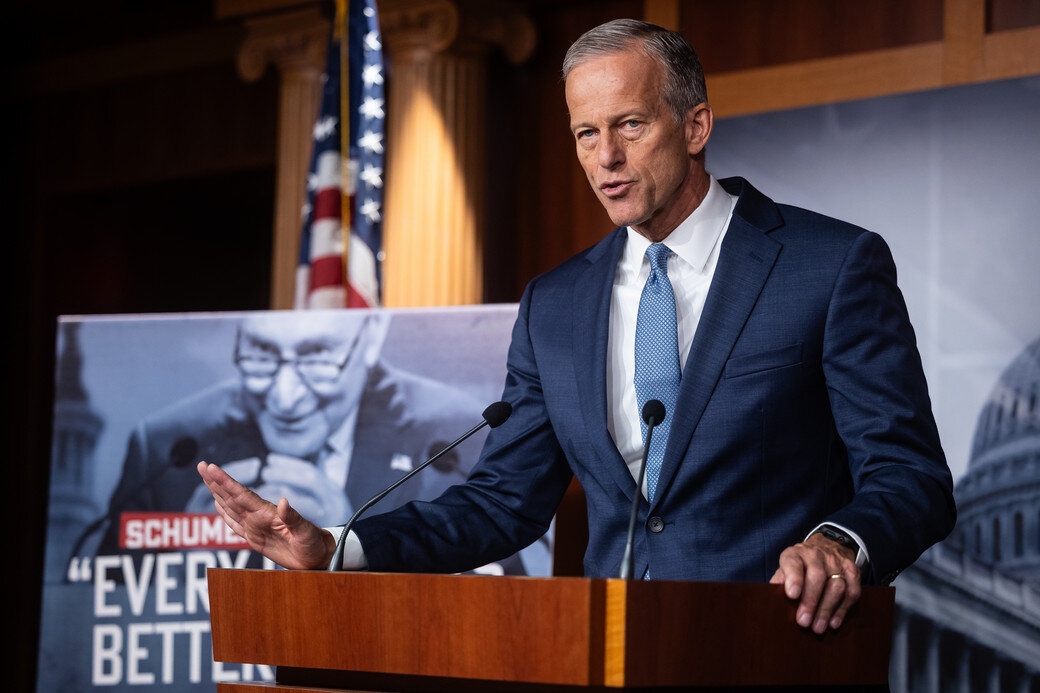
Senate Democrats voted once again Tuesday night to reject the GOP-led funding patch, guaranteeing the government shutdown stretches beyond the two-week point.
Nearly 14 days since federal funding lapsed, the failed vote marks the eighth time the Senate has failed to advance the House-passed measure. And there’s no sign the bill is on the precipice of picking up more support unless Republican leaders agree to negotiate.
Democratic Sens. Catherine Cortez Masto of Nevada and Independent Sen. Angus King of Maine, who caucuses with Democrats, continued to break rank and vote with Republicans on their funding patch through Nov. 21. Democratic Sen. John Fetterman of Pennsylvania did not vote, bringing the final tally to 49-45.
Senate Majority Leader John Thune said in a brief interview Tuesday that he doesn’t think more Democrats are “ready quite yet” to vote for the GOP stopgap.
“But there’s still a lot of conversations that are happening,” Thune added. “I think they’re trying to find a way.”
There are bipartisan talks between rank-and-file senators about what would happen after the shutdown in terms of passing the annual government funding bills, as well as addressing the enhanced Affordable Care Act subsidies. But unless party leaders and the White House get involved in negotiations, at least one Senate Democrat — Sen. Jeanne Shaheen of New Hampshire, who has been at the center of those talks — said she will continue to vote against the Republican bill.
“What we need is for the leadership in both houses — and the president should weigh in — to sit down, or designate somebody to sit down, and negotiate,” Shaheen told reporters late last week. “Because until they do that, we’re not going to make progress.”
As the government shutdown drags on without a quick offramp in sight, GOP leadership is discussing changing the end-date — potentially from Nov. 21 to sometime in mid-December — to try to buy more time to negotiate a longer-term government funding deal.
Some Republicans have also floated the idea of holding a vote after the government is reopened on extending the ACA subsidies — which, if allowed to expire, could result in massive premium hikes and millions losing coverage. Senate Minority Leader Chuck Schumer has shot down that idea, however, noting that there is no guarantee Speaker Mike Johnson would ever allow such a vote on the floor in the House.
“Democrats have made it very clear — day in and day out — we want to open the government and have a serious negotiation to fix the health care premium crisis,” Schumer said Tuesday. “They won’t even sit down and talk with Democrats about it. That makes no sense.”
Democrats did not force a vote Tuesday evening on their alternate proposal linking government funding through October to the party’s health care priorities and new restrictions on Trump’s ability to unilaterally claw back congressionally approved funding. They can still force one additional vote on their bill, but after that, Republicans are expected to block them from moving to bring it back up.
The pressure tactic is aimed at cutting off Democrats’ ability to argue that they are in fact voting to fund the government by supporting their own bill, which does not have the support in Republican-controlled Washington to get signed into law.
